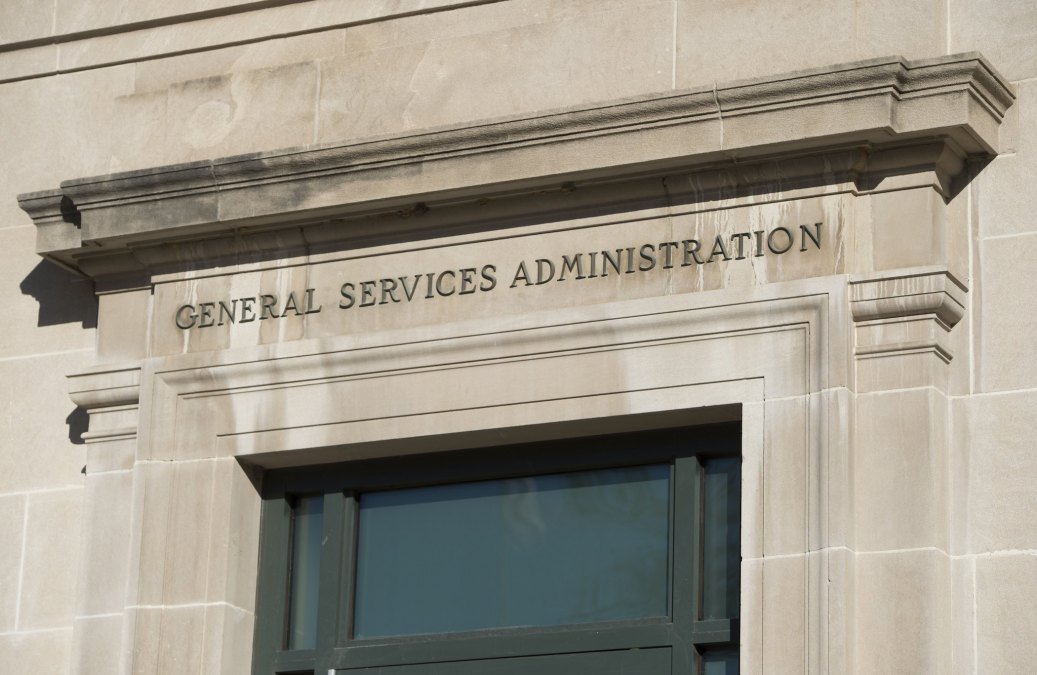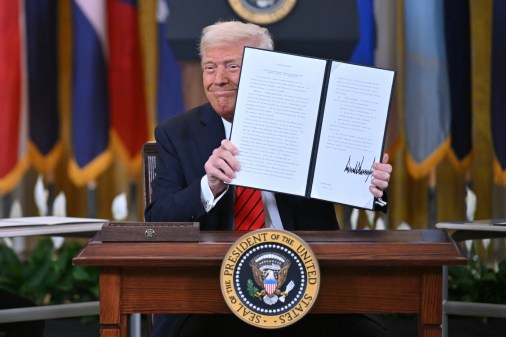2022 in review: Key federal IT solicitations delayed by volley of pre-award challenges

Federal agencies reported progress with several major governmentwide IT acquisition contracts during 2022, however, procurements were also hampered by a slew of pre-award bid protests brought by companies ranging from the largest federal contractors to mom-and-pop enterprises.
Among the key themes that arose from complaints filed with the Government Accountability Office and the United States Court of Federal Claims were: mentor-protégé joint venture agreements, the scoring of prior experience, and the communication of deadlines by awarding agencies to vendors.
FedScoop looks at some of the progress and challenges during the past year with three notable solicitations being tracked by the federal IT community.
CIO-SP4
According to the National Institutes of Health Information Technology Acquisition and Assessment Center (NITAAC), which is the executive agency for the $50 billion services solicitation CIO-SP4, awards for the contract are expected to take place on or before March 15 next year, and the end date for contracts awarded under the predecessor CIO-SP3 contract vehicle has been extended until April 29.
This comes after the Government Accountability Office in November dismissed a total of 117 bid protests filed in relation to the solicitation, ending pre-award challenges brought against NITAAC.
All pre-award challenges were discharged after NITAAC agreed to take corrective action, rendering moot the complaints filed by prospective offerors. As part of that remedial action, the agency will reassess a points-based scoring system used to assess prior performance by IT vendors and also re-adjudicate which offerors progress to the second phase of the procurement.
CIO-SP4 has faced several notable pre-award challenges since the contract request for proposals was first published in May 2021. These continued during 2022, with Maryland-based Precise Federal Consulting in May filing a bid protest with the Government Accountability Office over the CIO-SP4 procurement.
That complaint was filed after NITAAC sent a statement to certain offerors clarifying certain terms of the solicitation. In a copy of the emailed statement obtained by FedScoop at the time, NITAAC said that all experience examples submitted by offerors must be from the last three years prior to May 25, 2021, which was the initial solicitation release date.
Polaris
The General Services Administration-administered Polaris IT services procurement faced major challenges over the course of 2022, despite the Government Accountability Office earlier this month clearing all pre-award bid protests filed by prospective offerors.
These were dismissed after plaintiffs including VCH Partners and SH Synergy took their challenges to the U.S. Court of Federal Claims, which will now hear the cases and decide how GSA should proceed with the solicitation.
In October, SH Synergy and VCH submitted their claims, with the initial intention of obtaining a preliminary injunction to halt the solicitation and to seek relief.
This was just the latest of several pre-award challenges brought in relation to the solicitation this year and came after GSA opened an additional round of bid submissions for service-disabled veteran-owned small businesses and HUBZone businesses.
Meanwhile, GSA also extended bid submission deadlines multiple times for the contract vehicle’s first two pools, with the transition from DUNS numbers to unique entity identifier (UEI) numbers for all entities working with federal agencies being a key contributing factor to this.
Federal contracting sources speaking with FedScoop at the time described confusion that arose from delays in obtaining UEI numbers. In at least one instance, an offeror received a UEI already assigned to a different company, according to a source speaking on the condition of anonymity.
“We’re still fighting to get our own UEI … It doesn’t matter if you turn in your stuff to the SAM.gov portal ahead of the [Polaris] deadline if you don’t have a UEI numbers,” the source told FedScoop at the time.
Alliant 3
In October, the General Services Administration issued a draft request for proposal for Alliant 3, its latest governmentwide acquisition contract, dubbed “best-in-class.”
Unlike Alliant 2, this highly anticipated vehicle does not have a specific ceiling, but it is also focused on soliciting existing and future leading-edge technologies for federal agencies.
For this vehicle, GSA intends to use a self-scoring approach for prospective bidders, which has worked on procurements including OASIS, ASTRO, HCaTS and Alliant 2.
According to an analysis by law firm Baker Tilly, “offerors will complete a self-scoring worksheet that considers several factors and will need to provide supporting documentation along with their scorecard so that GSA can verify the points that an offeror is claiming.”
Baker Tilly noted also that GSA intends to make at least 60 awards, while also considering the possibility of tied scores.
“In the event of a tie at the 60th award, all offerors with equal scores will receive an award. Additionally, if a tied score occurs before the 60th award, the two offerors will also receive awards,” it added.






